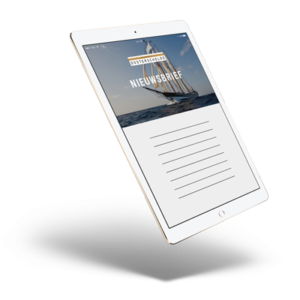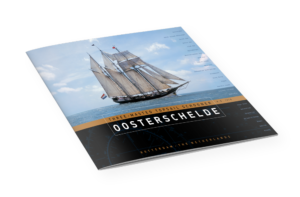19 Jul Wildlife
Wildlife
19 July 2013
Update by Victoria Nordhagen:
“Since I am a forest person and never spent much time at the coast or the sea, I really didn’t know what kind of wildlife could be expected so far out at sea, and much less on the southern hemisphere. So with this being my background, here comes a story of the amazing things I’ve seen at sea.
The first thing I noticed when leaving Mauritius was the lack of seagulls! In my home country of Norway usually there are always a lot of seagulls by the coast, so this was the first sign that something other than home was ahead of me. During our voyage across the Indian Ocean we have seen wildlife every day. Among other things we have witnessed a rich birdlife. The southern hemisphere is the land of different kinds of albatrosses and petrels. I have discovered that there are many different kinds of albatrosses. These majestic birds ride the winds across the sea surface, rarely moving their wings. I think they are beautiful animals and I keep wondering about how they can exist in what seems such an inhospitable environment with no possibility of rest (in the shape of land) for miles and miles! They must be at sea for several months at a time! Mostly the albatrosses show up in pairs, and someone told me that an albatross is together with its partner for life, which I think is a nice thought. We have been trying to find out what kind of albatross (and other birds) we are seeing using the Dutch book of sea birds. This has been the topic of many a discussion on deck, if the bird had a black or yellow beak and all the different variations of colouring of the feathers, if you could see the feet or not, the variations are endless. Anyway, from what I can make of the birds in the book, we have seen these (amongst others): Sooty-headed albatross (I didn’t know albatross were black!) and Yellow-beak albatross (both roughly translated from Dutch). Another bird we also see a lot of is the Cape pigeon, it is a smaller petrel with black and white markings on its back, white underneath and with a black head.
If you spend some time on deck looking out at the sea, sometimes you will suddenly be surprised by things appearing at the surface of the water. The first time I saw flying fish leaping out of the waves and speeding across the water I was really astonished! What did I just see?? They have showed up a few times after that first time, sometimes only a single one, while other times you can spot a whole bunch of them!
Another great experience for me was seeing whales for the first time in my life! It was the end of the night shift, early in the morning. I was sitting on one of the benches in the back of the ship, looking at a pretty nice sunrise when I suddenly spotted something big breaking through the surface behind the ship! I immediately knew it was a whale because the size if it and called the others around me. In the passing minutes we saw more whales around the ship coming up to the surface to have a breath. A great nature experience! Around Mauritius and Réunion we even had dolphins speeding around the bow of the ship and jumping and spinning into the air! Also a first time experience for me.
The night also offers wonderful sights although it seems slightly strange. If you look over the side of the ship on a very dark night you will sometimes see lights in the water! These lights can only be seen when it is very dark outside, even moonlight would be too much. It is truly amazing to sit on deck under a starry sky in the middle of the ocean looking down into the deep of the water and see the light show of the phosphorescent algae, jelly fish and other small organisms in the water. The algae and other creatures light up when the water around them is stirred, so around the bow in front of the ship and in the back the view is at its best.
From time to time we also fish from the boat with a single line out back. Using this method we have caught a few fish, but the fish per hour rate is rather small. However, we have caught two different kinds of tuna. One of the species was a very nice tuna variety with a very long side fin and a beautiful blue colour on the back.
Now that we have a little more than a week left at sea and are closing in on land once more, I am curious to see what kind of wildlife the next days will bring. I’m especially hoping to see some more whales off the coast of Australia!”





